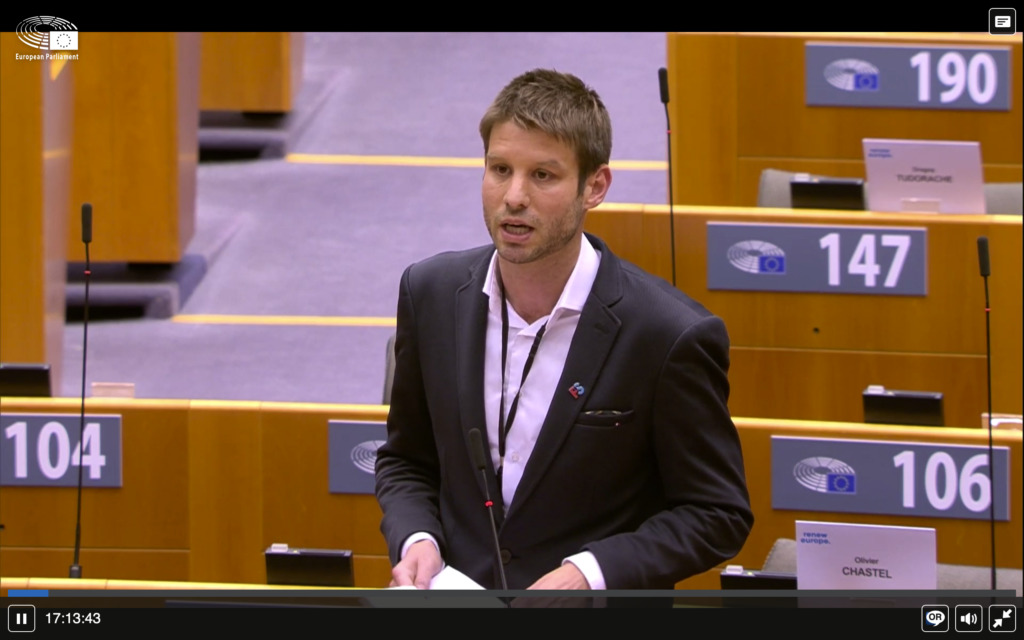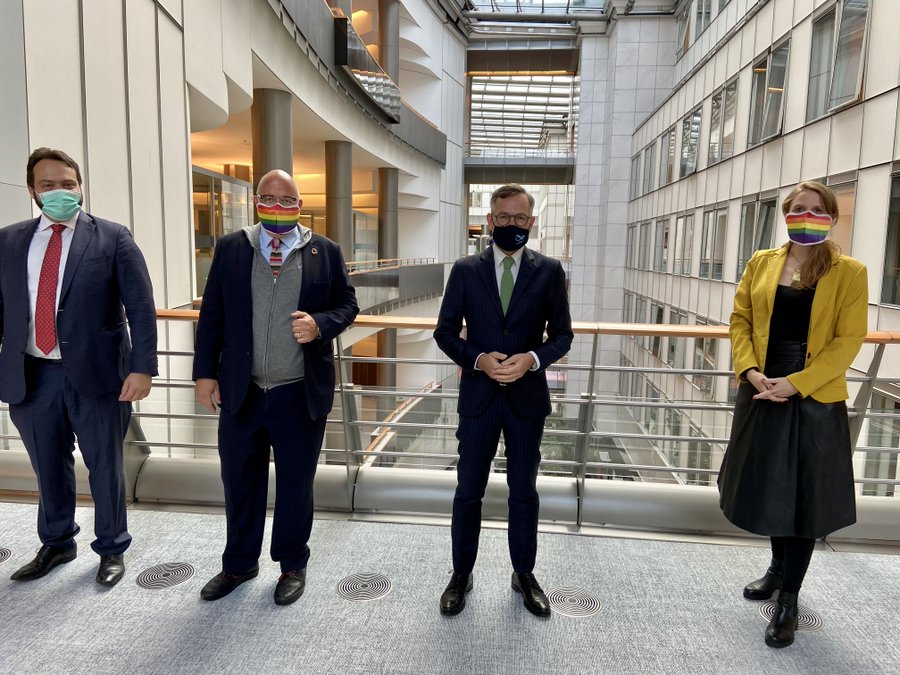Plenary summary: EU mechanism for Democracy, Rule of Law and Fundamental Rights, rule of law conditionality in European funds, resolution on Bulgaria and meeting with German State Minister for European Affairs
During its October I plenary session, the European Parliament held again several initiatives that relate to the human rights of LGBTI persons:
- the debate and vote on the report on the need for an EU Mechanism for Democracy, Rule of Law and Fundamental Rights;
- a discussion on rule of law conditionality in the framework of the Next Generation EU and MFF;
- a resolution on Bulgaria with specific references to LGBTI issues;
- a meeting between the LGBTI Intergroup Bureau and the German State Minister for European Affairs, Michael Roth.
The Establishment of an EU mechanism for Democracy, Rule of Law and Fundamental Rights

On Monday 5 October, Members of the European Parliament debated the report on the Establishment of an EU mechanism for Democracy, Rule of Law and Fundamental Rights. The report calls the establishment of a monitoring mechanism based on the principles codified in Article 2 TEU, to be governed by an interinstitutional agreement between the European Parliament, European Commission and Council, consisting of an Annual Monitoring Cycle on Union values and applying equally, objectively and fairly to all Member States.
Speaking on the focus of the proposed mechanism, the rapporteur stated:
Of course we are here to discuss the establishment of a new mechanism on democracy, rule of law and fundamental rights, but what we are really discussing and should be debating is the very future identity of the EU as a democratic peace project.[…] What we need is a permanent, legally binding mechanism that, first of all, streamlines and makes more effective the rule of law instruments that we have; second[ly, that] it covers all aspects of Article 2 and all values are enshrined; and third[ly, that it] ensures that compliance by Members States is not just reviewed periodically, but enforced.
Rapporteur Michal Šimečka, Vice-President of Renew Europe
Watch the plenary interventions here.
Check the results of the roll-call votes on the amendments here (pages 8-77) and the roll-call final vote here (page 5-6).
Read the final report after amendment votes here.
Discussion on rule of law conditionality in the framework of the Next Generation EU and Multi-Annual Financial Framework 2020-2027 (MFF)

Also on Monday evening, the European Parliament debated the need for a rule of law conditionality in the framework of European funds. Among others, Sophie in ‘t Veld took the floor to discuss the issue of values:
[…] we have to recognise that the Council has basically passed a ‘hot potato’ to the European Parliament, because a majority of governments secretly hope that Parliament will do their dirty work for them, because they are being held hostage by autocrats in their midst. That is why reverse QMV has to be a red line for this house. Let’s not fall into the trap that we have to accept a trade-off: either the Rule of Law or some of our other demands, like Own Resources. This is not about money – this is about what kind of EU will be funded with tax-payers’ money in the next years. Will it be: the illiberal democracy of Orban and his Orbanettes or will it be a European community of values and of law?
Sophie in ‘t Veld, Vice-President of the LGBTI Intergroup
Watch the plenary interventions here (part I) and here (part II).
Resolution on Rule of Law and Fundamental Rights in Bulgaria
Lastly, on Monday night, the European Parliament debated the situation of Bulgaria, specifically rule of law and fundamental rights concerns.
Among other important fundamental rights and rule of law issues, the resolution:
- Condemns hate speech, discrimination and hostility against people of Romani origin, women, LGBTI people and persons belonging to other minority groups (¶15);
- Addresses reforms necessary under the Criminal Code regarding hate crimes and hate speech grounds, as well as the establishment of a legal framework that provides equal rights for all couples (¶18);
Watch the plenary interventions here.
Read the final resolution here.
Meeting between LGBTI Intergroup and German State Minister for European Affairs, Michael Roth

On Tuesday 6 October, the Bureau of the LGBTI Intergroup held an exchange with German State Minister Michael Roth. Given Germany’s current role in holding the Presidency of the Council of the EU, this meeting was crucial to debate current issues of concern.
The LGBTI Intergroup will keep working with this and the forthcoming presidencies to ensure that LGBTI persons’ rights are rightly protected and addressed in the Council.





